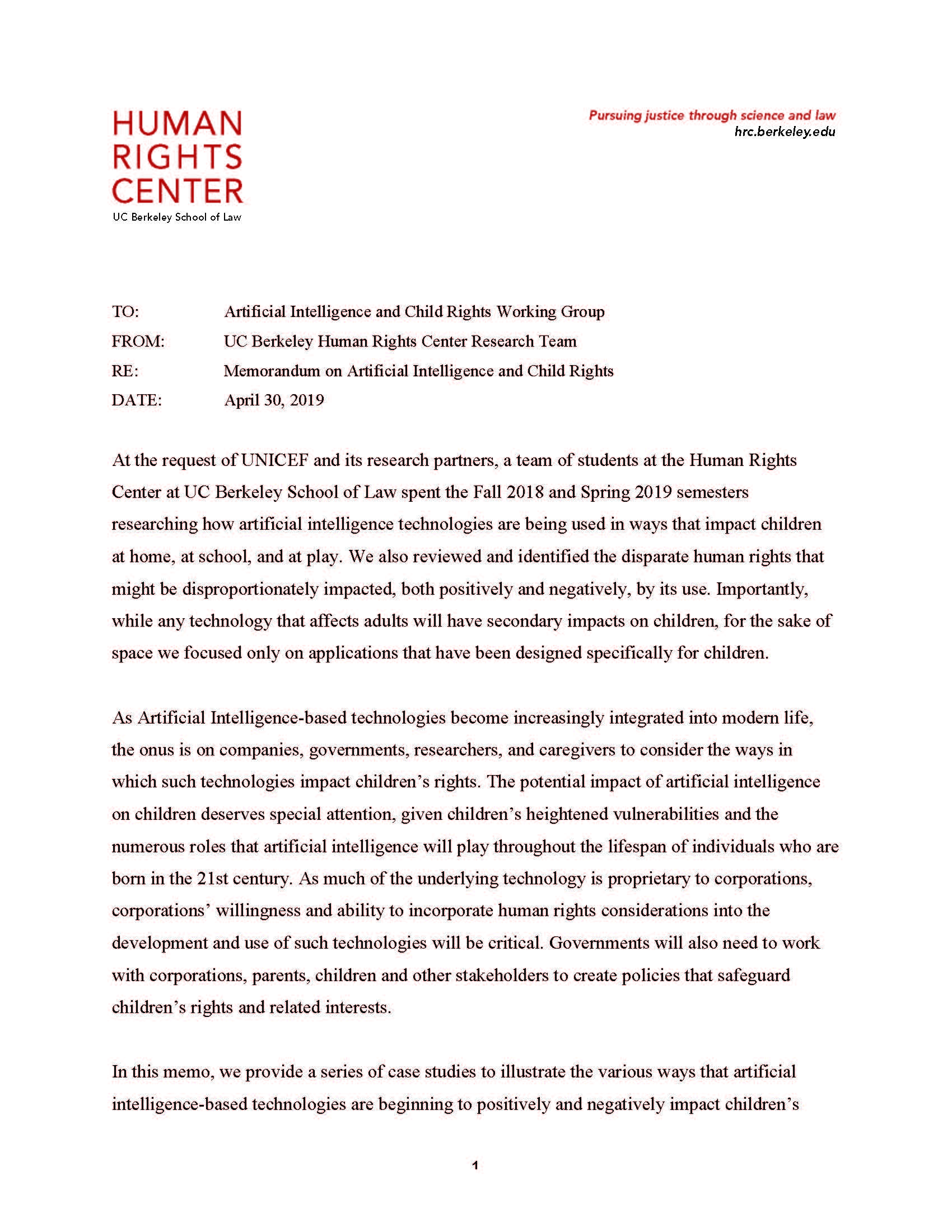Memorandum on Artificial Intelligence and Child Rights
Download PDFSummary
At the request of UNICEF and its research partners, a team of students at the Human Rights Center at UC Berkeley School of Law spent the Fall 2018 and Spring 2019 semesters researching how artificial intelligence technologies are being used in ways that impact children at home, at school, and at play. We also reviewed and identified the disparate human rights that might be disproportionately impacted, both positively and negatively, by its use. Importantly, while any technology that affects adults will have secondary impacts on children, for the sake of space we focused only on applications that have been designed specifically for children. As Artificial Intelligence-based technologies become increasingly integrated into modern life, the onus is on companies, governments, researchers, and caregivers to consider the ways in which such technologies impact children’s rights. The potential impact of artificial intelligence on children deserves special attention, given children’s heightened vulnerabilities and the numerous roles that artificial intelligence will play throughout the lifespan of individuals who are born in the 21st century. As much of the underlying technology is proprietary to corporations, corporations’ willingness and ability to incorporate human rights considerations into the development and use of such technologies will be critical. Governments will also need to work with corporations, parents, children and other stakeholders to create policies that safeguard children’s rights and related interests. In this memo, we provide a series of case studies to illustrate the various ways that artificial intelligence-based technologies are beginning to positively and negatively impact children’s rights, and to spotlight critical questions that researchers, corporations, governments, educators and parents should be asking now in order to better promote children’s rights and protect children from negative consequences. We hope that this memo will help a range of stakeholders better understand and begin to lay a framework for addressing the potential impact of artificial intelligence on today’s children, and on future generations.

